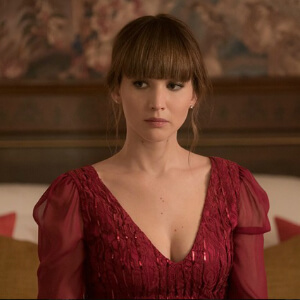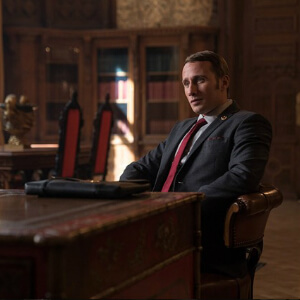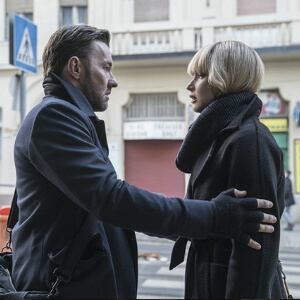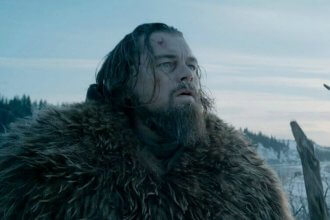Who does not like a good spy story? The Bourne and Bond series (philosophically discussed on this website here), Bridge of Spies, Munich, The Manchurian Candidate (1962 version of course), the Jack Ryan films, the Mission: Impossible films (one is here), and my personal hidden gem that few have seen Farewell. Then there are the many John le Carre’ films (The Constant Gardner, Tinker Tailor Soldier Spy, A Most Wanted Man, The Spy Who Came In from the Cold, and many others.) These films suggested, long before it became a commonplace belief in America, that there was treachery and betrayal on both sides of the Cold War and other conflicts. Maybe that is why I have always loved this genre.
So now we have one of Hollywood’s most successful actresses, Jennifer Lawrence, starring in the heavily advertised Red Sparrow based on a best-selling 2013 novel of the same name (the first of a trilogy). The novel has an authoritative resonance as it was written by retired CIA officer Jason Matthews. The complex story told in the 577 page novel has the twists and turns one would expect from any good espionage novel and was, for me, a very enjoyable read. But does it translate to the big screen?
The Cold War Did Not End
Set during a Putin-led Russia (1999 to, essentially, now), the movie opens, as does the novel, with a tense chase of an American through the streets of Moscow. Our protagonist, CIA agent Nate Nash (Australian actor Joel Edgerton — so completely different than when I last saw him on screen in Loving) fires his gun to draw attention of Russian police away from his Russian contact (“mole”), code-named MARBLE. There is a mad chase of the American through the streets of Moscow ending with Nate falling, gasping at the gate of the American embassy crying “American! American! Don’t shoot!” while rifles of both the trailing Russians and the American embassy guards are trained on him. At that point one suspects the film will have its share of thrills and that promise is fulfilled.
 Intertwined with the intense opening chase are scenes of a featured Moscow ballerina, Dominika Egorova, portrayed by the never-more-beautiful Jennifer Lawrence. She is the featured ballerina for the Moscow ballet but very quickly we see her career extinguished due to a ghastly injury intentionally caused by a rival dancer. We realize Dominika’s potential for violence as we witness her “payback” to that rival. Still she has trained her whole life for the ballet and now any such career has evaporated.
Intertwined with the intense opening chase are scenes of a featured Moscow ballerina, Dominika Egorova, portrayed by the never-more-beautiful Jennifer Lawrence. She is the featured ballerina for the Moscow ballet but very quickly we see her career extinguished due to a ghastly injury intentionally caused by a rival dancer. We realize Dominika’s potential for violence as we witness her “payback” to that rival. Still she has trained her whole life for the ballet and now any such career has evaporated.
But her uncle Vanya Egorova (Belgian Matthias Schoenaerts, known for The Danish Girl) has a high position with Russian Intelligence. Asking her to dinner, he discloses a scheme which he feels would be to her benefit. He tells her of a Russian oligarch who is “an enemy of the people“(in truth that means he is a rival to President Putin) but who has become entranced by Dominika. Vanya wishes to arrange an assignation between them to, Dominika is told, compromise his reputation. In return for her role in the entrapment, Vanya promises that Dominika’s mother, a widow, will have her serious medical illness cared for by the “state.” Unfortunately for Dominika the seduction goes beyond flirtation and Dominika finds her meeting is actually a set-up for a grisly murder. An assassin, Simyonov, garrotes the millionaire while he is sexually assaulting Dominika. Simyonov spares her life at the scene and the horrified Dominika is taken to her Uncle Vanya by the murderer where, as she says later, “They gave me a choice… die or become a Sparrow.”
The Art of Espionage Seduction
The Red Sparrow School is the Russian government’s special training for young, attractive men and women who are schooled in exploiting their target’s weak spots. The art of detecting “what it is they want” allows them to compromise their “assets” to serve the state’s ends. It is a dehumanizing and sordid education, which Dominika bears out of fear for her mother’s well-being as well as a lack of alternatives. She is transported to the isolated academy — with a foreboding and menacing shot of her car traveling on a lonely two-track across a snow covered plain toward a dark forest. Greeted at the door of the remote school by an effectively icy matron (veteran Charlotte Rampling of 45 Years and many B-roles) she braces for what is to come. The matron tells Dominika “When we are finished with you, the person that you were will no longer exist.”
Nate Nash, meanwhile, is demoted for his blown effort at contacting MARBLE and is sent back to the Langley, Virginia CIA headquarters. Fortunately for Nash’s career prospects, MARBLE goes silent, refusing to communicate with anyone but Nate. Eventually Nash is assigned to Budapest with the prospect of gaining from MARBLE some very sensitive Russian intelligence — the identity of an American mole who is giving top-secret information to the communists.
“Can I Trust You?”
Russian intelligence becomes aware that Nash is being sent to Hungary and sets an absolute priority of obtaining the identity of MARBLE from Nate by whatever means necessary. Dominika has now graduated from Sparrow school and, with her uncle pulling strings to bring credit to himself, she is given the incredibly important assignment of compromising Nash to have him give up MARBLE. Thus begins the cat and mouse game between Nate and Dominika. Will he be caught in her well-disguised web and betray his asset? Will she rebel against Uncle Vanya, despite her mother’s precarious situation? Will the hitman Simyonov, who murders her best friend in their apartment, in turn eliminate Dominika… or Nash? Can we viewers guess the identity of MARBLE?
 This bloody and sometimes sexually explicit tale is thrilling. Even having read the novel, I was holding my breath at critical junctures. And the tale ends with a twist that is both satisfying and disappointing… especially surprising for me since the twist is different than the one in Matthews’ novel. But it is little more than a good “spy story.” While President Putin has a major role in the novel, he was written out of the film (to prevent Russian hacking?) and that dilutes the immediacy of the plot. And as in most espionage films, agents of America and Europe are portrayed as “the good guys” — at the least a little more admirable than the nefarious Russians.
This bloody and sometimes sexually explicit tale is thrilling. Even having read the novel, I was holding my breath at critical junctures. And the tale ends with a twist that is both satisfying and disappointing… especially surprising for me since the twist is different than the one in Matthews’ novel. But it is little more than a good “spy story.” While President Putin has a major role in the novel, he was written out of the film (to prevent Russian hacking?) and that dilutes the immediacy of the plot. And as in most espionage films, agents of America and Europe are portrayed as “the good guys” — at the least a little more admirable than the nefarious Russians.
A Director Who Knows His Actress
Director Francis Lawrence, who worked with Jennifer Lawrence in all but the first Hunger Game films, obviously knows Jennifer very well (albeit he is not related to her). He brings out excellent work in this film with, at times, a very unsexy Dominika showing dogged determination and resolve. Her relationship with Nate Nash, however, is less convincing due to the lack of any “courtship” in the few minutes of screen time allotted to their supposed entrapment of each other. What a shame, as that part of the story was delightfully delicate in the original material.
Jeremy Irons turns in a crucial and memorable performance as General Korchnoi, one of Vanya Egorova’s superiors. Mary-Louise Parker (who I usually enjoy) is less successful in a small, histrionic role. The cast is otherwise filled out with many Russians-speaking-English with heavy accents. It is too bad that modern cinema seems unwilling to go for the authentic Russians-speaking-Russian (or other nationals speaking their character’s native languages), apparently believing audiences will not read subtitles. (When you, like me, have listened to too much 70’s and 80’s rock, you get pretty used to reading subtitles.)
 Director Lawrence did insert some feminism, perhaps as a counterpoint to the film’s blatant objectification of women’s bodies. Dominika says at one point “In my country if you do not matter to the men in power, you do not matter.” Dominika’s understandable hostility towards her uncle (“You sent me to whore school!”) is hardly more than towards Americans when she repeatedly scorns Nate’s materialism and naiveté. In addition, she teaches her leering Russian boss in Budapest a lesson he will not soon forget. In the end Lawrence portrays a powerful woman who ascends beyond the men about her… one to be admired even if she does not have the extra-sensory powers she possessed in the novel. Her Uncle Vanya says “You have a gift. You know how to survive… this is what you are meant to do.”
Director Lawrence did insert some feminism, perhaps as a counterpoint to the film’s blatant objectification of women’s bodies. Dominika says at one point “In my country if you do not matter to the men in power, you do not matter.” Dominika’s understandable hostility towards her uncle (“You sent me to whore school!”) is hardly more than towards Americans when she repeatedly scorns Nate’s materialism and naiveté. In addition, she teaches her leering Russian boss in Budapest a lesson he will not soon forget. In the end Lawrence portrays a powerful woman who ascends beyond the men about her… one to be admired even if she does not have the extra-sensory powers she possessed in the novel. Her Uncle Vanya says “You have a gift. You know how to survive… this is what you are meant to do.”
Cinematography and framing of the film is well done and sometimes memorable. Some of the interior shots (the film was shot entirely in Hungary, Bratislava, Slovakia and Austria) are breathtaking, as is Jennifer’s costuming as a ballerina. She allegedly did many of her own ballet moves after studying for months to perform those few scenes. And her slow descent down a red-carpeted staircase of an ornate 19th century “Russian” edifice is not easily forgotten.
Contains Thrills But Not a Great Film
Despite heavy pre-release advertisement, it appears the movie will be a significant disappointment for 20th Century Fox. I suspect much of the audience’s lukewarm response to the film has to do with its twisted plot. To those who have not read the novel, it may be impossible to completely decipher who is deceiving whom. The plot was, of course, much more clear in Matthews’ novel, despite his having credits for the screenplay (along with Justin Haythe). Proof once again that even 140 minutes of screen time does not equal almost 600 pages of narrative. As noted, Red Sparrow is the first of a literary trilogy by Matthews but I suspect it will stand alone in cinema.
I wish this thriller would have matched the novel, or the films in my opening paragraph. But, despite some good performances, direction, and plot twists, it does not… the whole being less than “the sum of its parts.” There is no great moral lesson taught that we have not seen or read previously. Dominika’s character does grow and change but we are left scratching our head as to where she goes from here. Unless you really love espionage movies, or Jennifer Lawrence, I would recommend you wait until it is streaming or on DVD to view it. Red Sparrow would be a good “popcorn date” to watch with someone (an adult) whose company you enjoy. Or just snuggle in and read Matthews’ novel.





